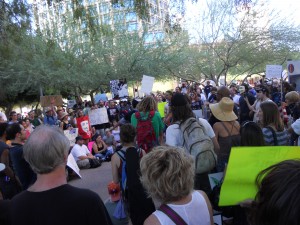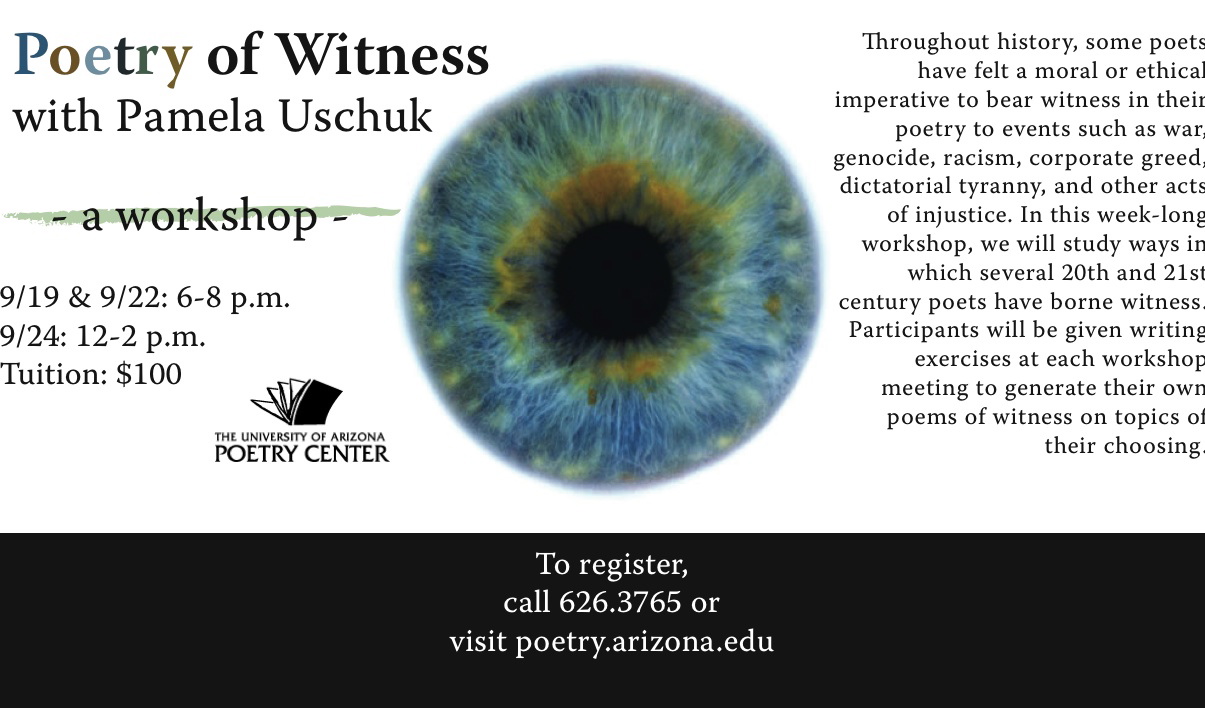For the upcoming fall issue, the editors at Arcadia decided to do two things that were completely new for us: run a themed issue and bring on a guest editor. Although many of us were apprehensive about surrendering our editorial control, ultimately we caved, and allowed someone to completely hijack the issue. The terrifying but ultimately rewarding result was this: Arcadia #7: The Post-Traumatic Issue, guest edited by Benjamin Reed, which will be out November 15. Superstition Review has been kind enough to allow us to sample Reed’s introduction here, and we hope it will give you a small taste of the sorts of things that Reed and his stable of writers are considering: trauma and the way it shapes our stories, stories and the way they shape our trauma. To get your hands on the poems, stories, essays, photojournalism, and art itself, though, you’ll have to pre-order a copy of Arcadia #7, which we’re currently offering at a 15% discount. Find out more here: http://www.arcadiamagazine.org/subscribe.html.
Dear Reader,
It can still startle me, when I meet an amicable stranger in a waiting room, at a bar, or in line at the grocery store: the speed and apparent ease with which he or she can submit an incredibly detailed sketch of their biography. I encourage you to test this. The next time some unknown quantity gives you that unmistakable expression of wanting to chat—it’s mostly in the eyes—let them approach, and see if she doesn’t give you a half-dozen facts about herself, arranged in a taut narrative arc, within the first forty-five seconds. Everything she wants you to know about herself comes condensed, coded, and braided, like DNA, inside of a remarkably small package. Bartenders, police officers, and people who pick up hitchhikers will know exactly what I’m talking about. In any case, if you find yourself assessing the veracity of or motives behind the brief narrative submitted for your consideration, you’re essentially grappling with questions of literary criticism, such as whether or not it is necessary to gauge the reliability of the narrator, to define the tension between author and persona, to determine if the climax is too clichéd to be acceptable, etc.
As social creatures, we offer these practiced, miniature autobiographies in order to control how others see us, but we also repeat these stories to ourselves as we think, rehearse, and declare them, until they merge with and then obscure what an objective third party might deem a more accurate representation of “the truth.” Note, for example, how often men over thirty who played high school football “could have” played at this or that major university—indeed, who surely would have gone pro—were it not for: the knee injury/unexpected pregnancy/lost scholarship/. . . whatever. The question isn’t if we conspire with strangers to reshape our personal history, but how, and to what end.
We revise and reformat our past tragedies, losses, and shocks in order to render them into a comprehensible narrative, not just for the sake of how we seem to others, but for our own sanity.
Patients who undergo prolonged talk therapy, who tell and re-tell their “stories”—in a frank and more nuanced way than the conveniently abridged versions we typically deploy with strangers—can physically and quantitatively change how their brains work. Neural pathways, in effect, are simply patterns of response. By telling a fuller and more considered truth, old thoughts are changed by being guided into new pathways. The patients remake themselves. It is my belief, as I stated in this issue’s call for submussions, that healthy, normative compartmentalization of the psyche through the cognitive ordering of our personal experience parallels how we organize the structures of our fictive narratives and poetics, especially when shadows of ourselves appear in these texts. “Narrative re-compartmentalization,” as it were, is the regeneration of a personal identity, one that is paradoxically both as real and yet more real than its precursor. We tell stories about ourselves in order to become these stories.
The enormous human brain is blessed with language yet cursed by the innate conflict of memory. All humans, in describing our lives, turn fiction into fact. The practice that distinguishes writers and poets from others is that we voluntarily flip this circuit and toil to consciously turn fact into fiction. I would argue that both practices employ the same cognitive functions, and that the products of each mechanism are at least arguably equal in the quality of the truth they offer.
I didn’t choose “The Post-Traumatic” as the theme for this issue of Arcadia in order to navigate the reader to some topical tropic, some tangential island just off the known continent of literature. I did not ask writers to submit stories of aftermath, loss, and recovery in order to explore the cognitive and literary backwaters of how life becomes art, or vice versa, but rather to draw the reader even closer to the art of defragmentation, which is always at the very center of the many means and motives at play when we sit down to write. As David Mamet writes in Three Uses of the Knife,
Artists don’t wonder, “What is it good for?” They aren’t driven to “create art,” or to “help people,” or to “make money.” They are driven to lessen the burden of the unbearable disparity between their conscious and unconscious minds, and so to achieve peace.
It has been an honor to serve as Arcadia’s first guest editor. Many thanks to Chase, Noah, Roy, Corey, Ross, Angela, Alysha, and the rest of the staff of this very excellent publication. Obviously, this issue never would have come to fruition without their insight and unflagging effort.
Thank you for reading this volume. I am exceedingly proud of every entry, and I feel grateful to have made the acquaintance of the writers herein. If this text brings you even a fraction of the joy and excitement it brought me as editor, I think you will be satisfied.
Yours sincerely,
Benjamin Reed
Austin, Texas
September 2013
Benjamin Reed lives in Austin, Texas, with his wife and family. His fiction has most recently appeared in [PANK], West Branch, and Arcadia. He won this year’s Austin Chronicle Short Story Contest, as well as the last Avery Anthology Small Spaces Prize. He has served as web editor for the online journal Front Porch, and as an associate editor for the annual Unstuck.
 Mark your calendars on September 18 for this exciting opportunity to attend “An Evening of Poetry and Conversation with Nikki Giovanni.” The event will be held at the Mesa Arts Center’s Ikeda Theater and run from 6:30 p.m. to 8:30 p.m. This event is free. Find out more at this link.
Mark your calendars on September 18 for this exciting opportunity to attend “An Evening of Poetry and Conversation with Nikki Giovanni.” The event will be held at the Mesa Arts Center’s Ikeda Theater and run from 6:30 p.m. to 8:30 p.m. This event is free. Find out more at this link.





